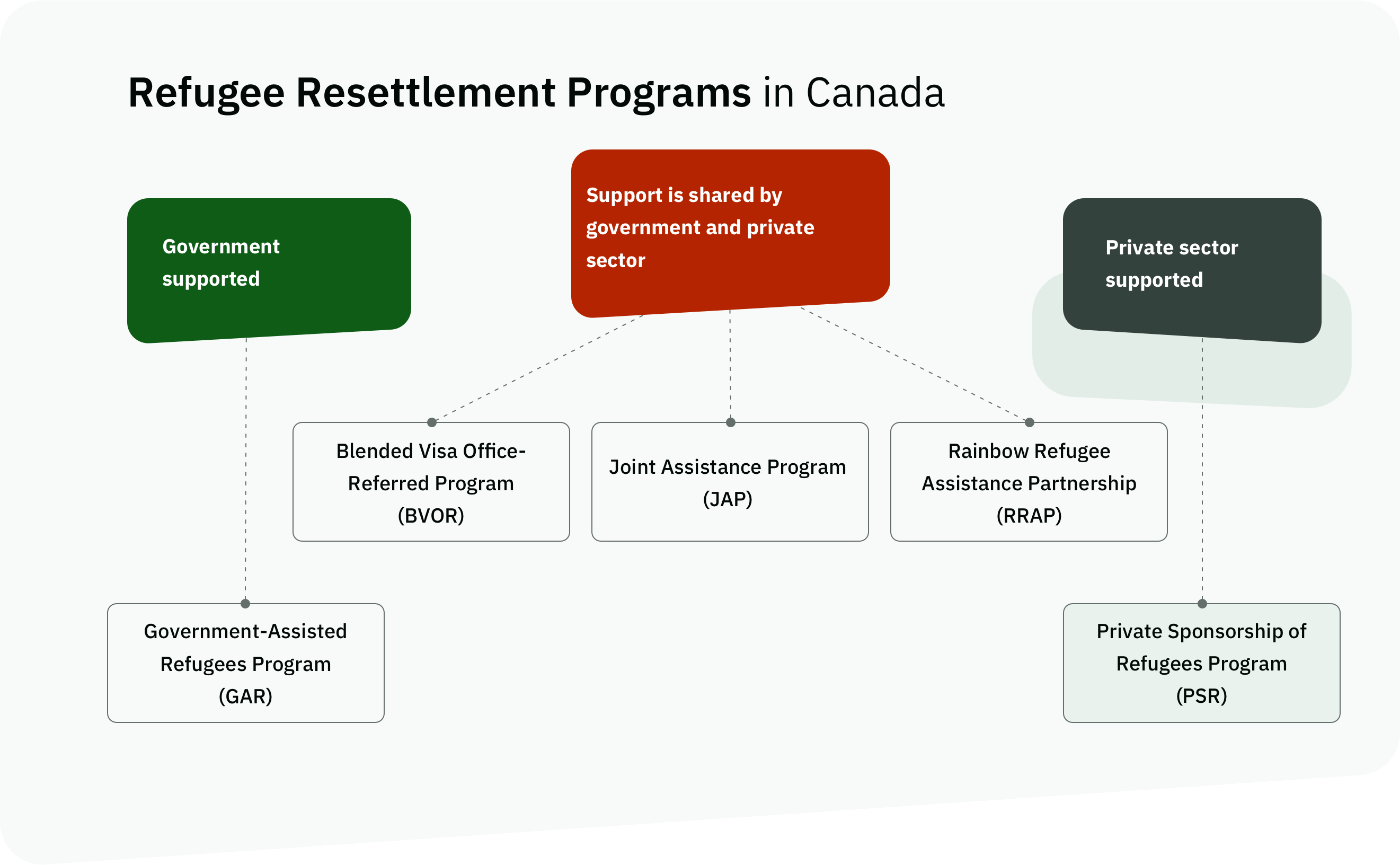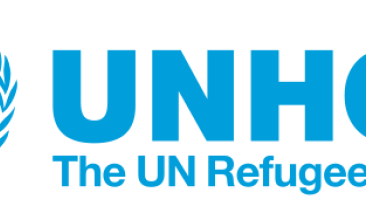Refugees can be resettled in Canada via different resettlement programs. The main difference between these programs is the breakdown of the financial and non-financial support from the government of Canada and private sponsors.
These programs fit into three categories :
- programs in which the support is the full responsibility of the government of Canada;
- programs in which the support is shared by both the government and private sponsors;
- programs in which the support is the full responsibility of the private sponsors.
The Government of Canada is responsible for the support
Under the Government-Assisted Refugees Program (GAR), resettled refugees receive financial support from the government of Canada. This support usually lasts for up to one year after their arrival in Canada, or until they are able to support themselves independently, whichever happens first.
Refugees are referred to Canada for resettlement by the United Nations Refugee Agency (UNHCR) or by another referral organization.
Support is shared between the government and the private sector : blended programs
Three refugees resettlement programs are characterized as blended. In these programs, sponsoring costs are shared between the government of Canada and the private sector. Different programs follow different methods to support the resettlement of refugees in Canada.
- The Blended Visa Office-Referred Program (BVOR)
Under the Blended Visa Office-Referred Program (BVOR), the government is responsible for providing six months of financial support, while the private sponsors are responsible for the remaining six months. Private sponsors are also responsible for start-up costs and social and emotional support during the entire sponsorship period.
In collaboration with the UNHCR, the government of Canada selects refugees who could be resettled under the BVOR program. The government of Canada does a complete check of profiles submitted by UNHCR, which includes an eligibility and admissibility assessment. The selected profiles are then matched to private sponsors.
- The Joint Assistance Program (JAP)
Under the Joint Assistance Program (JAP), Immigration, Refugees and Citizenship Canada (IRCC) partners with Sponsorship Agreement Holders (SAH) to support resettled refugees. The government is responsible for covering start-up costs and providing financial support for the first 24 to 36 months after arrival. The sponsorship group is responsible for ensuring the non-financial support.
The JAP is designed for refugees with special needs who might need more support when settling in Canada. These needs may stem from trauma caused by violence or torture; medical disabilities; effects of systemic discrimination; and/or the size of a family.
- The Rainbow Refugee Assistance Partnership (RRAP)
The Rainbow Refugee Assistance Partnership (RRAP) is specifically designed to resettle refugees who identify as LGBTQIA+. Under this program, the government funds start-up costs and three months of financial support. The sponsoring group covers the remaining nine months of financial support, and provides community/social support as well for the duration of the entire sponsorship process.
The program is designed to resettle LGBTQIA+ refugees fleeing violence and persecution.
Support is the full responsibility of the private sponsors
The Private Sponsorship of Refugees (PSR) program helps private groups to sponsor refugees so that they may be resettled in Canada. The sponsors offer support of a financial and non-financial nature to the sponsored refugees during their first 12 months in Canada or until they become self-sufficient, whichever comes first.
There are three different types of private sponsorship groups:
- Sponsorship agreement holders (SAH), who can collaborate with constituent groups (CG)
- Groups of five (G5)
- Community sponsors (CS)
Groups of five and community sponsors can only sponsor individuals who already have refugee status and have been issued a refugee status document, which recognizes the refugee status of an individual. SAHs can also sponsor eligible refugees. Although they do not necessarily need to have been issued a refugee status document, they must still meet certain criteria.


